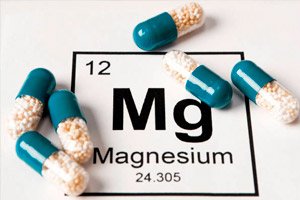
All iLive content is medically reviewed or fact checked to ensure as much factual accuracy as possible.
We have strict sourcing guidelines and only link to reputable media sites, academic research institutions and, whenever possible, medically peer reviewed studies. Note that the numbers in parentheses ([1], [2], etc.) are clickable links to these studies.
If you feel that any of our content is inaccurate, out-of-date, or otherwise questionable, please select it and press Ctrl + Enter.
Optimal magnesium levels may reduce the risk of dementia
Last reviewed: 02.07.2025
 ">
">A study published in the journal Advances in Nutrition focused on the link between magnesium levels in the body and cognitive health and neurological functioning in adults.
Dementia in older adults is a significant cause of disability and mortality, as it affects not only memory and behavior but also most cognitive abilities, including the performance of daily tasks. More than 55 million people worldwide suffer from dementia, and this number, as well as the economic burden on health care, is expected to increase significantly in the next decade due to the aging population.
Modifiable risk factors such as stress, depression, vascular health, and lifestyle should be addressed to reduce the incidence or slow the progression of dementia. Electrolytes play an important role in neurological health. Magnesium in particular plays a key role in cellular function and neuronal health, and deficiency has been linked to memory impairment and Alzheimer’s disease. However, results from long-term cohort studies on this topic have been inconsistent.
In this study, the researchers conducted a systematic review of cohort studies and randomized controlled trials on the role of magnesium in cognitive health. They also conducted a meta-analysis to determine the association between different forms of magnesium (dietary intake, supplements, and biomarkers) and cognitive outcomes.
Although the exact mechanisms remain unclear, magnesium is known to support neuronal health by reducing inflammation and oxidative damage, as well as maintaining the integrity of the blood-brain barrier. Magnesium also inhibits N-methyl-D-aspartate receptor activity and reduces calcium influx, reducing excitotoxic damage. It plays a role in maintaining myelinated axons and the myelin sheaths on neurons.
Studies in animal models have shown that magnesium deficiency is associated with impaired memory associated with hippocampal activity, and oral magnesium supplementation reduces neuroinflammation.
This review included cohort studies and randomised controlled trials in adults aged 18 years and older that examined the association between magnesium in the form of biomarkers, dietary intake or supplements and cognitive outcomes measured by diagnoses or tests.
The study found that existing randomized controlled trials and cohort studies were able to provide only moderate evidence of a U-shaped association between serum magnesium levels and cognitive impairment and dementia. An optimal serum magnesium level of 0.085 millimoles per liter was associated with the lowest risk of dementia.
Furthermore, the association between dietary magnesium intake and dementia risk remained unclear due to inconsistent results across studies and the lack of a clear dose-response relationship.
Findings on the associations of other forms of magnesium exposure and cognitive outcomes were also unclear. The results of the review and meta-analysis showed a lack of clear evidence for the effects of different forms of magnesium exposure on cognitive outcomes. Therefore, more randomized controlled trials and long-term cohort studies are needed to determine the effects of different magnesium sources on cognitive outcomes over time.
The study highlighted the lack of convincing evidence for the role of different forms of magnesium in improving cognitive outcomes and dementia. More detailed and long-term studies examining the effects of magnesium intake from different sources on cognitive outcomes and the role of magnesium biomarkers in neuronal health are needed.
